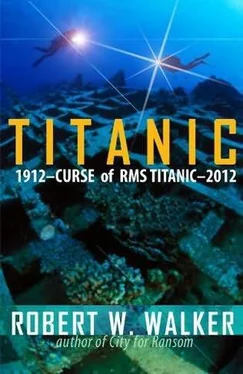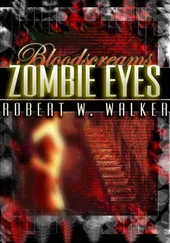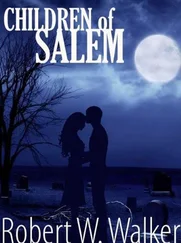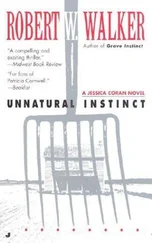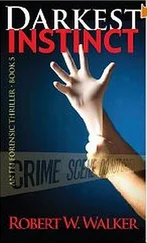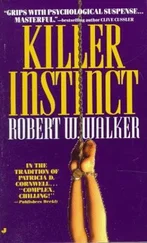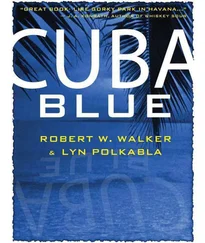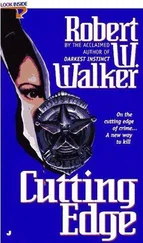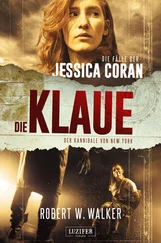“We’re at your side,” said Declan.
“Lads, it could be dangerous. We dunno what we’ll find down there. Could be that your uncle, Thomas, fell in with these two in some scheme or other, maybe to sabotage that bloody ship everyone is talking about.”
“That’s wrong! Uncle Anton would never be a part of any such—”
“You hired me son, and you don’t know what you don’t know as they say.”
“I know he’d never be a part of the plans of malcontents!”
“All right, all right.” Wyland held his hands up.
Declan calmed his friend and added, “We’re doctors or soon will be—third year surgical students. If you do find hurt men down there, we can be of service.”
“There’s no evidence my uncle is down there,” chimed in Thomas again, angry yet again at the suggestion. “He’d have no business in the mine.”
“Thomas’ uncle is an upstanding citizen and no anarchist,” Declan added, frustrated as he stared at the big man he feared may well be their only hope of finding Fiore.
“A fine recommendation but suppose the three had other dealings, dealings to do with money? Every man has his dance with Mammon, you know.”
“Mammon?” asked Declan. “This man had no liking for greed or wallowing in wealth, sir.”
“My uncle bowed before no false gods, and certainly not money. I can’t see it,” replied Thomas, “not in a million years.”
“I’ll not waste another breath on you two; come ’long if you must. Walter—drop us below.”
The odd threesome were soon being lowered below the earth by Walter when a mine official named Hal Bartholomew rushed to the site, asking, “What’s going on here, man?”
Walter’s stuttering explanation of the two young doctors and ex-patriot American detective now gone into the mineshaft caused the other man’s eyes to bulge. “They’ve gone in search of O’Toole and McAffey?—possibly another fellow as well, you say?”
“Y-Yes, sir.”
“But we’ve got a search party together now.”
“Perhaps your search party’d should’ve acted faster,” suggested Walter as he watched the platform disappear into the blackness below; he also saw that Wyland had lit the John Lantern Walter had handed him. In a moment, a second lantern held by one of the boys came on.
“A third fellow? I’ve no word of a third miner lost below.” Bartholomew the Englishman said. Most administration at the mine were British. It was the way of things, and Walter hadn’t questioned it since he was a child. Harland and Wolff, the White Star Line, all of it was British, and more recently American interests had bought the lot of it, both the shipyard and the ship company. It was one reason the anarchists were again making noises in and around Belfast; so much so that Pinkerton agents had been called in to oversee the care of Titanic until her official launch as opposed to the hull launching of a short time ago.
Walter had been among the huge throng of more than a hundred thousand curious who had turned out to see the successful hull launch, according to the Belfast papers. From what he’d heard through the workmen at the shipyard, it had taken twenty-two tons of tallow, soap, and train oil to grease the slipway bed. The coated slipway measures taken that last day in May 1911 had worked against the enormous three-tons-per-square-inch pressure of the freshly painted hull. The Titanic was then towed by tugs to the Harland & Wolff fitting-out basin where final outfitting had been going on these many months since—without incident or need of Pinkerton agents.
Now this.
Walter had insisted they each wear a miner’s hat with a battery-operated light just above their foreheads but Declan’s went out, and Thomas kept shining his into the others’ eyes, blinding them. Alastair Wyland insisted they forego the damned hats.
But they left the paltry lights on the helmets as they went down and down into the black hole, it grew darker and danker. To while away the time, Wyland gave the boys a history and economics lesson.
“You know boys, given the recent backroom deals surrounding these giant ships the White Star Line is having built in Belfast? Brings prosperity, jobs, and management believes themselves saints for supplying jobs to working men—miners, shipyard workers, tugboat captains and crew, but they’ll be hiring on British crews for their Olympic class monsters like Titanic just as they did with the Olympic launched in October 1910.”
“The British are paying the freight… it’s a British held company.”
“Not anymore, lads.”
“What do you mean?”
“As early as 1869 J. Bruce Ismay’s father, Henry formed the Oceanic Steam Navigation Company in order to establish the White Star Line as a high-class steamship service in the Atlantic passenger trade, and he contracted his first ships to be built by Belfast shipbuilders Harland & Wolff. All rather hush-hush until the son took over in 1891 when under pressure, Ismay admitted to partnership of the White Star Line. He then took over completely after his father's death in ’99.”
“What’s this to do with us going down into the mines?”
“Getting to that. In ’94, William J. Pirrie became chairman of Harland & Wolff. And four years later, American author Morgan Robertson published his novel entitled Futility in which a British passenger liner called the Titan—get it?—hits an iceberg and sinks on her maiden voyage without enough lifeboats in the month of April in the North Atlantic. The fictional ship is eerily similar to the yet-to-be conceived Titanic in size, speed, equipment, numbers of passengers—both rich and poor. And in the end of the novel, the number of passengers who perished, God forbid, would be the same as on Titanic should she go down in the North Atlantic.”
“A novel… so what? Fiction is frivolous,” said Thomas. “What’s it to do with—”
“Robertson had information on the company—an insider feeding him information; the company planned to build three Olympic class ships they called unsinkable from the outset. Morgan Robertson’s book, which I’ve read, is a running history of how Titanic , Olympic, and the yet to be built Britannic were conceived by men interested in money and power.”
“This is fascinating,” commented Declan. “Go on.”
“Well in 1902, the White Star Line was purchased by the International Mercantile Marine Company, a shipping trust headed by U.S. financier J. Pierpont Morgan.”
“Hold on,” said Declan, “do you mean the same J.P. Morgan who operates the largest transportation lines and all the trains in America?”
“One and the same, yes. While the White Star’s ships still fly the British flag and carry British crews, the company is essentially controlled by American interests, and by ’04, Ismay, now age forty or so—with Morgan’s full support—becomes President and Managing Director of International Mercantile Marine with complete control.”
“And why is that a bad thing?” asked Thomas. “I smell something awful; you smell that?”
“Yeah,” added Declan. “Smells like decay.”
Alastair ignored this, continuing his tale. “Another thing, Morgan Robertson is related to Morgan—hence the name, but he’s a black sheep member. And another thing—”
A sudden jolt and the platform beneath their feet shuddered, but as the shaft was tight on all sides, they didn’t fear falling from either side, at least not yet. They heard something beneath them tumble as if caught on a rock and the platform had sent whatever it was hurtling downward with a rattling bumpity-bump pounding their ears. Still the platform continued on, lowering them still deeper.
Читать дальше
